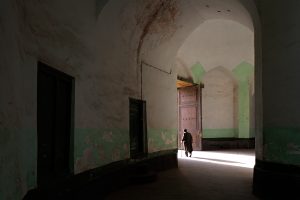On December 9, 2021, a momentous ruling was delivered, marking a significant moment for the Uyghur community. The finding: China has perpetrated genocide against the Uyghur people.
The independent Uyghur Tribunal, composed of international legal experts, scholars, and representatives from non-governmental organizations, conducted hearings in June, September, and November 2021. The tribunal’s expert panel meticulously examined over 500 witness statements and heard live testimonies from more than 30 witnesses, alongside analysis from 40 expert witnesses. The evidence base comprised approximately 100,000 pages of documents.
Eyewitness accounts vividly depicted the systematic brutality within China’s internment camps, including instances of torture and sexual violence, as well as the pervasiveness of forced labor, forced sterilization, and surveillance infrastructure in the region. Expert witnesses presented evidence sourced from internal Chinese government documents, public directives, Chinese government media releases, and analyses of government statistics.
At a press conference in London, 73 years to day after the U.N. General Assembly adopted the Genocide Convention in 1948, Sir Geoffrey Nice, a distinguished barrister and judge serving as the tribunal chair, announced the verdict that held the Chinese government accountable for committing genocide and crimes against humanity, a moment of acknowledgment for the long-endured suffering of the Uyghur people.
It is imperative to recognize the implications of the independent tribunal’s conclusion: China’s political leadership bears responsibility as genocidal actors.
Despite the irrefutable evidence established two years ago, why are we witnessing officials from North America, Europe, Australia, and leaders of Muslim-majority nations engaging in diplomatic exchanges with Xi Jinping, the orchestrator of this genocide? How will history evaluate these carefully orchestrated photo opportunities?
Even before the Uyghur Tribunal’s determination in September 2021, official entities worldwide had arrived at the same conclusion. In October 2020, the Canadian Parliament issued a finding of genocide. In January 2021, the U.S. State Department officially recognized the genocide. Within weeks of assuming office, the Biden administration publicly re-affirmed this acknowledgment. Legislative bodies in countries like Canada, Czechia, the Netherlands, and the U.K. have similarly labeled China’s treatment of Uyghurs as genocide.
The visits to the Uyghur region by entities such as the Organization of Islamic Cooperation (OIC) and the Arab League may not surprise, nor the sight of U.N. Secretary General António Guterres smiling alongside Xi Jinping in Beijing. However, what is concerning is the pivot toward engagement with China from stalwart advocates of Uyghur rights like the United States, Australia, and the United Kingdom.
Failing to confront genocidal actors yields dire consequences. It emboldens criminal regimes to further destabilize global security.
The Uyghurs continue to bear the brunt of China’s push to restrict liberty and freedom worldwide. Besides mass detentions and imprisonments, China is systematically erasing Uyghur culture, religion, and language through its policies and actions. Other egregious violations include widespread forced labor, enforced disappearances, and coercive birth control measures, which formed the basis of the Uyghur Tribunal’s judgment.
To many, the resilience of the Uyghur people is awe-inspiring. Witnessing our community unite to support one another amid the trauma of family separations and forced exile underscores our collective determination to bring the genocide to the world’s attention. Now, we ask the world to match our unwavering advocacy in ending a genocide.
Governments must impose forced-labor import bans, investment bans, technology-export bans, visa bans, and targeted Global Magnitsky human-rights sanctions, at an absolute minimum. Given the gravity of the crime recognized on Uyghur Genocide Recognition Day, it is crucial to end “business as usual” in the midst of ongoing atrocities. Action is imperative.

































